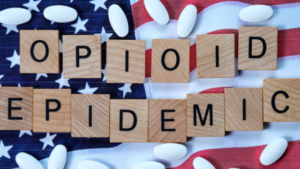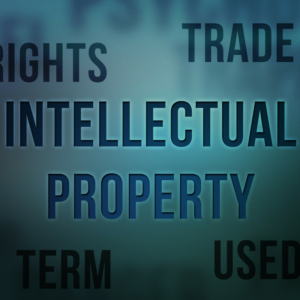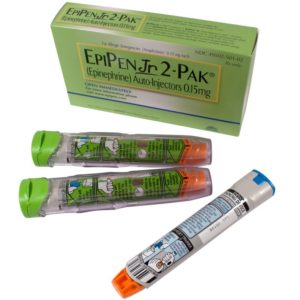by Gabriel Levitt, President, PharmacyChecker.com and Prescription Justice | Sep 21, 2018 | Drug Importation
 This week, our nation’s great senators passed a bill, the Opioid Crisis Response Act (OCRA), to fight back against the opioid epidemic. You think we’re stuck in partisan gridlock? Well, think again: the bill passed 99-1. This is how it goes down when Pharma is cool with a bill. Big Pharma can unite Congress like no other industry, organization or, certainly, president can. This bill passed unanimously (almost), because senators don’t want to vote against a bill that is seemingly dedicated to tackling opioid addiction. But some provisions, ones that may curtail access to safe personal drug importation, are unrelated to opioids and you can smell Big Pharma working behind the scenes.
This week, our nation’s great senators passed a bill, the Opioid Crisis Response Act (OCRA), to fight back against the opioid epidemic. You think we’re stuck in partisan gridlock? Well, think again: the bill passed 99-1. This is how it goes down when Pharma is cool with a bill. Big Pharma can unite Congress like no other industry, organization or, certainly, president can. This bill passed unanimously (almost), because senators don’t want to vote against a bill that is seemingly dedicated to tackling opioid addiction. But some provisions, ones that may curtail access to safe personal drug importation, are unrelated to opioids and you can smell Big Pharma working behind the scenes.
There’s some easily digestible intrigue relating to this bill and personal importation, but the language itself is obscure and annoyingly technical as well.
Let’s start with the intrigue.
A bill numbered H.R. 6, passed the House in late June 2018. The bill was called: “Substance Use-Disorder Prevention that Promotes Opioid Recovery and Treatment for Patients and Communities Act or the SUPPORT for Patients and Communities Act.” [To find it via the link provided, click the bill text, and then use the dropdown to find the version of the bill on June 28th, 2018]. That earlier H.R. 6 included the following language:
“(c) DEFINITION. – For purposes of subparagraph (B), the term ‘pattern of importing or offering for import articles of drug’ means importing or offering for import articles of drug describes in subclause (I) or (ii) of subparagraph (B)(ii) in an amount, frequency, or dosage that is inconsistent with personal or household use by the importer.”
That language applies to both the bill itself and the existing statute, which further complicates things, but the gist is simple:
The author of that language wanted to make clear that this legislation should not affect small, personal or household quantity medication imports.
After the bill passed, 396-14, it went to the Senate, specifically the Senate Committee on Health, Education, Labor and Pensions (HELP), led by the chair, Senator Lamar Alexander (R-TN) and ranking member, Senator Pat Murray (D-WA). In HELP, I believe that Senator Alexander crossed out H.R. 6 and added a whole new bill in the form of a substitute amendment. That substitute amendment, without vote or a committee conference report, removed the language above that was protective of personal imports.
Go to the bill H.R. 6. [After clicking the link, you’ll see “AMENDMENT” – “Strike all after the enacting clause and insert the following.” That’s what I mean by replacing the entire bill with a new one; one that contains new language and omits other language.]
This backroom editing and revising of bills often undermine the democratic process but is sadly commonplace in Congress. Large industry trade associations know how to play the game to make sure those revisions and edits work in their favor. There is no better player than the Pharmaceutical Researchers and Manufacturers of America (PhRMA) and their allies.
But what the hell does that definition above mean and pertain to anyway?
It relates to something called debarment. Under federal law, specifically Section 301 (cc) of the Food, Drug and Cosmetics Act, Title 21 U.S. Code 331, a person who is debarred cannot be involved in certain work relating to FDA-regulated industries.
There is mandatory and permissive debarment. We’re just concerned with permissive debarment here. Current law mostly calls for debarment of individuals who have committed felonies and misdemeanors – crimes. HR 6 amends this language by adding to that list:
“[a] person [who] has engaged in a pattern of importing or offering for import…adulterated or misbranded drugs”
And by adding the bolded text as you see below to define a Prohibited Act:”
“The importing or offering for import into the United States of an article of food or a drug by, with the assistance of, or at the direction of, a person debarred under section 335a(b)(3) of this title”
Let’s say you buy your cholesterol and asthma medication from Canada on a regular basis.
That’s a pattern. Under federal law, because of the Canadian label, the medications are misbranded, even if they are the exact same drug as the one sold here. In theory, this patient and/or a person who has helped that patient can be debarred from doing so.
There you have it. Now you see why that original language was in there to protect such people who import medications that are consistent with personal or household use by the importer – not resale.
Synthetic Trafficking and Overdose Prevention Act (STOP)
Another part of this bill that threatens importation are the provisions taken from the Synthetic Trafficking and Overdose Prevention Act (STOP Act). The STOP Act’s stated goal is to stop illegal imports of fentanyl and other drugs. The STOP Act is focused on making changes to our system of regulating international mail shipments. Small import packages come through international mail facilities without tracking in the way that FedEx, UPS, DHL packages are required by law to be tracked. If you order a drug from a Canadian pharmacy, the U.S. Postal Service delivers it to you. When Chinese fentanyl ingredient traders want to get stuff into the U.S., it also goes through the USPS via international mail facilities. So, the STOP Act creates new rules for the USPS to know what’s coming in with the goal of stopping illegal drugs.
The STOP Act can be great because it will be harder for opioid dealers in the U.S. to import the ingredients or finished opioid drugs that wreak havoc on our people. It’s potentially bad because the FDA very well might use this to stop “other drugs,” such as personal imports of lower-cost medicines, because it will be easier to do with the advanced data about incoming mail packages required under the new regulations. It’s certainly concerning because the drug companies and their allies have invested time and money to highlight, as a negative, that Americans receive their lower-cost medications via USPS.
Creating and Restoring Equal Access To Equivalent Samples Act (CREATES) vs. Higher Medicare Drug Prices
Now that different versions of the bill H.R. 6 have passed the House and Senate, the two chambers meet in conferences to create one version for the president to sign. To add insult to injury, behind the scenes, Pharma is trying to add language that would erase new discounts in Medicare Part D slated for 2019. On the other hand, drug price advocates are trying to get language in there to push through the provisions of the CREATES Act (Creating and Restoring Equal Access To Equivalent Samples Act).
Simply put, now, brand drug companies sometimes make it hard for generic drug companies to acquire the pharmaceutical samples they need to create a lower-cost generic. If CREATES goes through, generic drug companies could more easily obtain these samples. That would facilitate faster generic availability and save patients and taxpayers money: about $3-4 billion. The just outcome is Pharma losing its pitch to ditch the Medicare savings and then CREATES makes it in the bill! I’ve heard talk about horse trade.
What does this bill do to curtail the opioid epidemic? It will help, but it’s not even close to what is needed. I’m not going there at the moment, but here’s Politico’s take. Since there’s some good stuff in there, Congress feels obligated to go for it; so here we are. As I’ve shown you, Pharma’s many allies in Congress have used this bill to sneak in stuff that is unrelated to opioid addiction that Pharma wants – including taking a jab at importation and lower drug prices in other countries.
Tagged with: Opioid Crisis Reduction Act, opioids, politics, Synthetics Trafficking and Opioid Prevention Act
by Lucia Mueller, President, PharmacyChecker.com | Sep 14, 2018 | Prescription Savings
 PharmacyChecker president and co-founder, Gabriel Levitt, spoke at the New York Retirees Association of District Council 37 September 2018 meeting about the prescription drug price crisis in America. Retirees learned about the politics and policy of high drug prices and how to fight back against Big Pharma. He also covered how older Americans can get help when they can’t afford medications.
PharmacyChecker president and co-founder, Gabriel Levitt, spoke at the New York Retirees Association of District Council 37 September 2018 meeting about the prescription drug price crisis in America. Retirees learned about the politics and policy of high drug prices and how to fight back against Big Pharma. He also covered how older Americans can get help when they can’t afford medications.
As drug prices at local U.S. pharmacies, especially for generics, vary greatly, the first recommendation is to make sure you’re getting the lowest prices locally. There are discount cards, patient assistance programs, drug company co-pay coupons, state programs, and extra help from the federal government for low-income Medicare enrollees.
There is also the lifeline of personal drug importation from safe international online pharmacies, of which older Americans should take advantage when they can’t afford a medication here in the U.S. Gabe explained that it’s technically prohibited under federal law, although no one is prosecuted for doing so.
With around 200-300 members in attendance, the members didn’t hold back in expressing shock at the numbers surrounding the current state of drug prices in the United States vs. the rest of the world. Commonly prescribed drugs that many uninsured or under-insured Americans can’t afford are sold for much less in Canada and other countries. According to Kaiser Health News, eighty percent of Americans believe the prices of prescription medications are unreasonable.
(more…)
Tagged with: DC37, NYC, Retirees
by Gabriel Levitt, President, PharmacyChecker.com and Prescription Justice | Sep 7, 2018 | Internet Censorship
 The future of your ability to buy lower-cost medicine online from another country was indirectly discussed recently during congressional hearings with Facebook Chief Operating Officer, Sheryl Sandberg, and CEO and founder of Twitter, Jack Dorsey.
The future of your ability to buy lower-cost medicine online from another country was indirectly discussed recently during congressional hearings with Facebook Chief Operating Officer, Sheryl Sandberg, and CEO and founder of Twitter, Jack Dorsey.
The issues on the table were much more grandiose-sounding than importation from Canada or buying medication internationally using the Internet. Russian meddling in our elections; political bias on Twitter against conservative and Republican ideas; personal privacy protection; and lots of discussions that affect 1st Amendment protections.
The takeaway by some experts is that Congress is getting ready to regulate the Internet.
As it applies to online access to safe and affordable medicine, Internet regulation could lead to access protections or access denied. In short, the pharmaceutical industry is actively engaged in driving safe international online pharmacies offline. The industry can often get what it wants from Congress and so the dangers of Internet censorship to block access to or shutdown international online pharmacies are real.
For a variety of posts on this, see our section on Internet Censorship.
Google’s top executives were invited to the hearings yesterday, but they declined to attend. Some accused them of being arrogant. But the company itself noted that search engines, like Google and Bing, are not the same as social media networks, like Facebook, Twitter, and Instagram. Google’s search engine was not used by bad actors in the way that occurred on Facebook, for example.
Google’s absence reminded me of Ms. Sandberg’s appearance at another Congressional hearing when she was vice president of global sales for Google in 2004. That hearing of the Committee on Governmental Affairs; Permanent Subcommittee on Investigations focused on Internet access to medication and importation. In prepared remarks, Ms. Sandberg stated Google’s position on importation and online pharmacies:
“As a provider of Internet-based information tools, Google has no position on the broader merits of the drug importation debate, or on the optimal mechanisms for regulation of online pharmacies; rather, our interest is to preserve the ability of Internet users to find useful and relevant information, including information about licensed pharmacies.”
That was then; this is now. Fast forward to last spring: Google has made a deal with the FDA that undermines its earliest and best principles as articulated by Ms. Sandberg. That deal is not about blocking Canadian pharmacy ads on Google. That’s old news in bad policy-making. The new deal is that Google will remove search results if asked by the FDA, based on its administrative decisions, without a court order. These are so called “organic” searches, not paid results.
To date, the FDA has yet to use this new permission from Google to censor safe international online pharmacies. And it continues to use due process through warning letters to rogue online pharmacies, as it did to combat sites selling tramadol without a prescription. I agreed with the FDA on that action because those sites have proven to harm people who are addicted to opioids.
But, you know, pharmaceutical companies have spent four billion dollars lobbying Congress over the last 20 years or so. And if Congress is legislating new regulations to control behavior on the Internet, Pharma won’t be far behind with its goal to stop Americans from buying more affordable meds online.
Tagged with: facebook, Google, politics, Sheryl Sandberg, twitter
by Gabriel Levitt, President, PharmacyChecker.com and Prescription Justice | Aug 31, 2018 | FDA enforcement
 The FDA is warning 21 online pharmacies to stop selling certain prescription opioid drugs to people in the U.S.
The FDA is warning 21 online pharmacies to stop selling certain prescription opioid drugs to people in the U.S.
According to the FDA, the 21 websites at issue are operated by four separate networks:
CoinRx,
PharmacyAffiliates.org,
PharmaMedics,
and MedInc.biz.
Each network received a similar warning letter from the FDA, which singles out their alleged illegal sales of unapproved and misbranded tramadol, also noting that a prescription was not required.
(more…)
Tagged with: Enforcement, fentanyl, opioids, tramadol, warning letters
by Gabriel Levitt, President, PharmacyChecker.com and Prescription Justice | Aug 24, 2018 | Drug Importation
 Generic drugs often become available earlier in other countries and that means greater affordability. Generally, it’s a violation of a drug companies’ intellectual property rights when a company sells a generic in a country before the patent has expired. But what happens if you import a generic version of a drug, one that is lawfully-made and sold in a country where it is available but still on patent here, to fill a prescription? Are you committing an intellectual property violation?
Generic drugs often become available earlier in other countries and that means greater affordability. Generally, it’s a violation of a drug companies’ intellectual property rights when a company sells a generic in a country before the patent has expired. But what happens if you import a generic version of a drug, one that is lawfully-made and sold in a country where it is available but still on patent here, to fill a prescription? Are you committing an intellectual property violation?
According to a side agreement (of the General Agreement on Tariffs and Trade) among countries party to the World Trade Organization, called TRIPS (Trade-Related Aspects of Intellectual Property Rights), countries are not obligated to enforce IP laws for small importations of goods, which include pharmaceuticals.
You can find this in Part III, Enforcement of Intellectual Property Rights, Article 60:
De Minimis Imports
Members may exclude from the application of the above provisions small quantities of goods of a non-commercial nature contained in travelers’ personal luggage or sent in small consignments.
The “above provisions” refer to enforcement actions against intellectual property violations that involve goods crossing borders (in person, by plane, sea, through the mail, etc.). If you read closely, it includes the word “may.” That means, in theory, you could be accused of an IP violation, but I know of not a single instance of that happening to an individual importing a medicine for personal use.
What is clear is that there’s general agreement (no pun intended) that individuals should not be subject to IP enforcement actions for importing a product for personal use. When it comes to a life-saving medicine, this seems like common decency – even natural law.
Tagged with: article 60, intellectual property rights, patent, TRIPS, WTO
by Gabriel Levitt, President, PharmacyChecker.com and Prescription Justice | Aug 16, 2018 | Drug Safety
 EpiPen, the emergency epinephrine auto-injector medicine, is in short supply in the U.S. and other countries, such as the U.K. and Canada. Now, parents of kids who need to carry around EpiPen Jr. are not just worried about the cost of EpiPen but if they can get it at all. If you are considering buying EpiPen online, here’s my warning:
EpiPen, the emergency epinephrine auto-injector medicine, is in short supply in the U.S. and other countries, such as the U.K. and Canada. Now, parents of kids who need to carry around EpiPen Jr. are not just worried about the cost of EpiPen but if they can get it at all. If you are considering buying EpiPen online, here’s my warning:
Only Buy EpiPen from Verified Online Pharmacies
When it comes to fast-acting, life-saving products, buying online from a rogue online pharmacy can turn out to be deadly. If you get a fake or expired product, then it might not work. Enough said. The message is clear: do NOT buy from an online pharmacy that isn’t one associated with your neighborhood pharmacy. If you decide to buy online, stick to online pharmacies that are verified. That includes online pharmacies verified by us, PharmacyChecker, or LegitScript, the National Association of Boards of Pharmacy VIPPS program, or the Canadian International Pharmacy Association.
You can buy brand-name EpiPen online from Canada using verified online pharmacies: a two pack for about $230.
Buy Generic EpiPen at U.S. Pharmacies
When it comes to cost and availability, you may not have to look internationally for savings. In the U.S., there’s a generic version made by the same company that makes the brand version, and it’s much less expensive. According to GoodRx, you can buy the generic with a discount coupon for almost half the price of the brand-name sold at Canadian online pharmacies: $125. The brand version in the U.S. is over $600!
Where are all the EpiPens?
According to Market Watch, manufacturing problems are causing EpiPen supply problems. The generic drug company, Mylan, has the license to market and sell EpiPen in the U.S. and Canada, but the brand-name drug company, Pfizer, owns and runs the plant that makes the drug. To make a very long story short, the FDA has cited problems with Pfizer’s protocols for assembling the drug. Pfizer is trying to up its game, but the process is taking some time.
There are epinephrine alternatives to EpiPen, brand and generic. They include Adrenally and Auvi-Q, which might be more affordable. Consumer Reports has a good article on these products, although I’m not sure about their current availability.
The Market Watch article suggests that you can still get the product, but they make it seem a lot more challenging than it should be. If you choose to buy it online, whether for availability or cost, stick to verified sites.
Tagged with: EpiPen, mylan, Pfizer, shortages
 This week, our nation’s great senators passed a bill, the Opioid Crisis Response Act (OCRA), to fight back against the opioid epidemic. You think we’re stuck in partisan gridlock? Well, think again: the bill passed 99-1. This is how it goes down when Pharma is cool with a bill. Big Pharma can unite Congress like no other industry, organization or, certainly, president can. This bill passed unanimously (almost), because senators don’t want to vote against a bill that is seemingly dedicated to tackling opioid addiction. But some provisions, ones that may curtail access to safe personal drug importation, are unrelated to opioids and you can smell Big Pharma working behind the scenes.
This week, our nation’s great senators passed a bill, the Opioid Crisis Response Act (OCRA), to fight back against the opioid epidemic. You think we’re stuck in partisan gridlock? Well, think again: the bill passed 99-1. This is how it goes down when Pharma is cool with a bill. Big Pharma can unite Congress like no other industry, organization or, certainly, president can. This bill passed unanimously (almost), because senators don’t want to vote against a bill that is seemingly dedicated to tackling opioid addiction. But some provisions, ones that may curtail access to safe personal drug importation, are unrelated to opioids and you can smell Big Pharma working behind the scenes.

 PharmacyChecker president and co-founder, Gabriel Levitt, spoke at the
PharmacyChecker president and co-founder, Gabriel Levitt, spoke at the  The future of your ability to buy lower-cost medicine online from another country was indirectly discussed recently during
The future of your ability to buy lower-cost medicine online from another country was indirectly discussed recently during  The
The  Generic drugs often become available earlier in other countries and that means greater affordability. Generally, it’s a violation of a drug companies’ intellectual property rights when a company sells a generic in a country before the patent has expired. But what happens if you import a generic version of a drug, one that is lawfully-made and sold in a country where it is available but still on patent here, to fill a prescription? Are you committing an intellectual property violation?
Generic drugs often become available earlier in other countries and that means greater affordability. Generally, it’s a violation of a drug companies’ intellectual property rights when a company sells a generic in a country before the patent has expired. But what happens if you import a generic version of a drug, one that is lawfully-made and sold in a country where it is available but still on patent here, to fill a prescription? Are you committing an intellectual property violation? EpiPen, the emergency epinephrine auto-injector medicine, is in short supply in the U.S. and other countries, such as the U.K. and Canada. Now, parents of kids who need to carry around EpiPen Jr. are not just worried about the
EpiPen, the emergency epinephrine auto-injector medicine, is in short supply in the U.S. and other countries, such as the U.K. and Canada. Now, parents of kids who need to carry around EpiPen Jr. are not just worried about the 